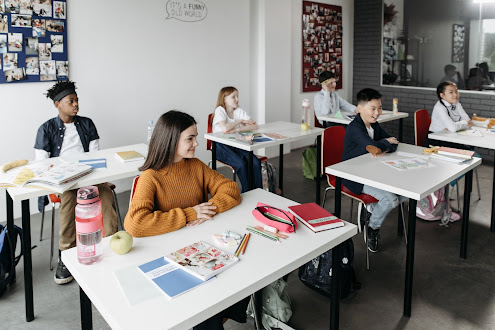Typically, the Montessori-style middle school environment is represented by a triad of roles that include teachers, parents, and students. During class-time, these roles are viewed slightly differently, with the prepared Montessori environment itself taking on a role of its own. This is not instead of the parental role-- much of which takes place at home-- but as a cornerstone in the classroom learning process.
1. The Child
In Montessori education, the child is seen as an active participant in their own learning. The child is encouraged to explore, discover, and learn at their own pace and according to their own interests. The child is also encouraged to develop self-discipline, independence, and a sense of responsibility for their own learning. Montessori middle school students are often involved in their own parent-teacher conferences. They take an active role in discussing their progress and goals with their parents and teachers.
2. The Prepared Environment
The Montessori prepared environment is carefully designed to meet the developmental needs of each child. The environment includes a variety of hands-on learning materials that are designed to promote exploration, discovery, and independent learning. The environment is also organized and structured to promote order, concentration, and self-discipline. Montessori students are encouraged to take ownership of their learning process. They are given the freedom to choose their own learning activities and are supported in pursuing their own interests and passions.
3. The Teacher
The Montessori teacher is responsible for creating a supportive and nurturing learning environment that meets the needs of each individual child. The teacher observes the child's interests, strengths, and challenges and provides guidance and support as needed. The teacher also prepares and maintains the learning materials and activities in the classroom, ensuring that they are appropriate and engaging for each child.
Montessori middle school students are encouraged to work collaboratively with their peers. They engage in group projects and discussions that allow them to learn from and with each other.
Together, these three roles of the Montessori triad work in harmony to support each child's development and growth. The teacher creates a supportive and nurturing environment, the child is an active participant in their own learning, and the prepared environment provides the materials and structure to facilitate learning and growth. This approach fosters a love of learning and a lifelong commitment to personal growth and development.








